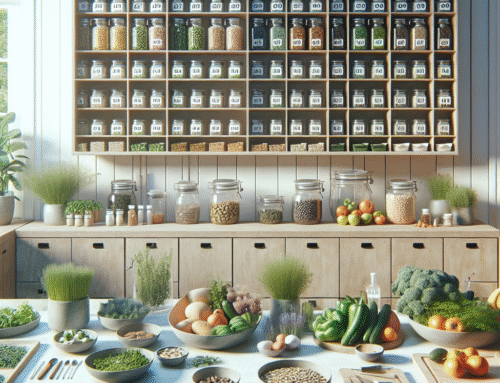Meal Prepping 101: A Beginner’s Guide by Bute Pharmacy

Meal Prepping 101: A Beginner’s Guide by Bute Pharmacy
Meal prepping is a fantastic way to save time, reduce food waste, and ensure you’re eating healthy, balanced meals throughout the week. Whether you’re a busy professional, a parent juggling multiple schedules, or just someone looking to eat better, this guide will help you get started with meal prepping.
What is Meal Prepping?
Meal prepping involves preparing meals or ingredients in advance, so you have healthy options ready whenever you need them. It can involve cooking full meals, chopping vegetables, or portioning out snacks.
Why Meal Prep?
- Time-Saving: Cooking in bulk means you’ll spend less time in the kitchen during the week.
- Healthier Choices: When you have healthy meals ready to go, you’re less likely to opt for takeout or unhealthy snacks.
- Cost-effective: Buying ingredients in bulk often saves money, and you’re less likely to waste food.
- Portion Control: Prepping meals can help you manage portion sizes, which is beneficial for those looking to maintain or lose weight.
Getting Started
-
Plan Your Meals: Decide on a weekly menu. Include a variety of proteins, vegetables, and grains. Websites like the NHS provide resources on balanced meals and portion sizes, ensuring your meal plan is nutritious (NHS Choices).
-
Make a Shopping List: Based on your meal plan, create a detailed shopping list. Stick to it while shopping to avoid impulse buys.
-
Choose Your Containers: Invest in good-quality airtight containers. Glass containers are great for reheating in the oven or microwave, while plastic boxes are lightweight and portable.
-
Set Aside Time: Dedicate a day, often Sunday, to prep your meals for the week. Many people enjoy making this a regular routine.
Meal Prep Ideas
- Breakfast: Overnight oats, smoothie packs, or egg muffins.
- Lunch: Grain bowls with quinoa or brown rice, topped with roasted vegetables and a protein source.
- Dinner: Homemade soups or stews, stir-fries, or grilled chicken with seasonal veggies.
- Snacks: Chopped fruits and vegetables, yogurt, or portioned nuts.
Storing Your Meals
Cool your food completely before storing it in containers. Label the containers with the meal name and date. Most meals can last 3-4 days in the fridge. For longer storage, consider freezing meals, which can last for several months.
Tips for Success
- Start Small: Don’t try to prep every meal at once. Begin with lunch or dinner and then add more meals as you get comfortable.
- Keep it Simple: Choose recipes that require minimal ingredients and basic cooking techniques.
- Be Flexible: If you’re not in the mood for a particular meal, swap it for something else you prepped.
Local Connection
Living on the beautiful Isle of Bute, with its access to fresh, local produce, meal prepping can be an enjoyable way to incorporate seasonal ingredients into your meals. The community often engages in local markets, so take advantage of what Rothesay and surrounding areas offer.
For professional advice on nutrition or to discuss any health-related queries, don’t hesitate to contact us at Bute Pharmacy.
Conclusion
Meal prepping can transform the way you approach your weekly meals. By planning and preparing ahead of time, you’ll save money, eat healthier, and feel more organized. Ready to start your meal prep journey?
To book an appointment or for any questions, please visit our website at Bute Pharmacy Appointment or Bute Pharmacy Contact. We’re here to help you on your path to better health and wellbeing!
















